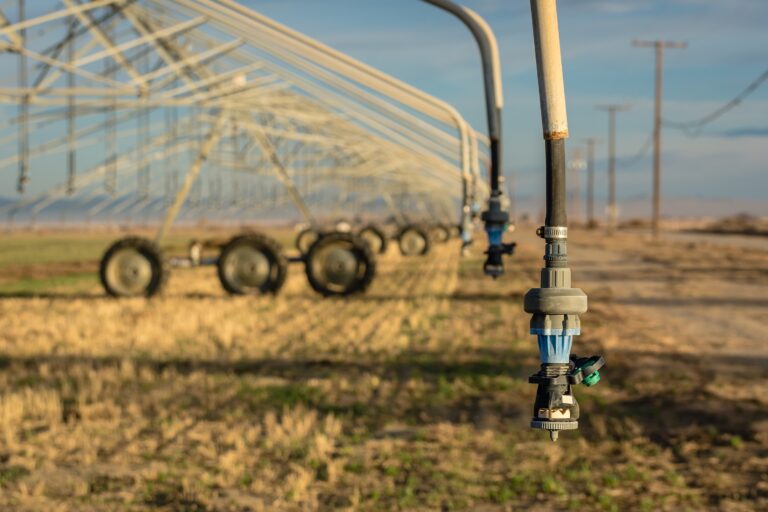Major natural disasters such as significant droughts inflict significant negative impacts on the local economy. In such circumstances, companies face a dilemma of mitigating adverse effects on cash flow by engaging in higher levels of tax avoidance or being more philanthropic in their tax behaviour.
Drought in the US
Drought is considered the most devastating natural disaster for the economy and the most common natural disaster in the United States. Drought is scientifically defined as “an interval of time, generally of the order of months or years in duration, during which the actual moisture supply at a given place rather consistently falls short of the time climatically expected or climatically appropriate moisture supply”.
Drought places a direct impact on the profits and operations of firms in industries reliant on water because of reductions in output either due to impact on their own production capacity or due to dependence on other industries not being able to provide the necessary inputs for the production process. Because tax avoidance is a common strategy for companies to cope with financial constraints, it is plausible that companies facing adverse cash flow shocks and higher financing costs resulting from drought conditions may have precautionary incentives to increase their tax avoidance.
However, it is also possible that companies operating during drought conditions engage less in tax avoidance activities for at least two reasons. First, according to prosocial behaviour literature, companies are more likely to demonstrate prosocial behaviour by helping others due to the social pressures and norms arising from the crisis periods. Not engaging in tax avoidance during drought conditions supports strategic philanthropy as it allows a company to be a good corporate citizen and meet the demand of all stakeholders.
Motivated by a growing interest among policymakers and academics in understanding how moral motivation can play a role in fostering tax compliance, we examine the effect of drought conditions on corporate tax avoidance practices of companies headquartered in drought-affected states in the US. We employ severe and extreme drought conditions in the US as natural disaster events during years 1964 to 2016 and examine the relation between drought and corporate tax avoidance using the Palmer Drought Severity Index.
Less tax avoidance during droughts
We find that drought is negatively associated with tax avoidance, indicating that companies engage in less tax avoidance activities during drought conditions. This is likely due to companies demonstrating prosocial behaviour by helping others due to the social pressures and norms arising from the crisis periods, as well as ethical considerations contributing to a more socially responsible attitude about making tax payment.
We also find that reduced tax avoidance is more pronounced among companies that report higher corporate social responsibility (CSR) performance. This confirms the validity of CSR assessment and suggests that high CSR performers may adopt various methods to support society.
In addition, we investigate the association between drought and tax avoidance based on the segregation of tax into federal, state, foreign, and other taxes. We find that federal and state taxes paid by corporate entities are higher in the year the states where the company is headquartered experience severe or extreme drought. The connection between drought and foreign and other taxes is negative and significant.
What if there are both drought and financial crisis?
We test for the effect of companies’ geographical concentration on tax avoidance activities during drought conditions. We find that those companies with business units located closer to each other or in the same state are more likely to engage in tax avoidance activities during drought conditions as these companies do not have operations outside of the drought affected regions. Such companies do not have required cashflows as their operations are affected by drought, hence, they do not reduce tax avoidance which could have otherwise helped them support the economy.
We examine whether drought conditions reduce company tax avoidance during the financial crisis. The interaction effect between drought and the financial crisis shows that companies headquartered in states affected by drought conditions engage less in tax avoidance during the financial crisis. These results further support our main findings that significant natural disasters can influence a company’s ethical consideration when making tax decisions.
Our results also show that the negative effect of drought on tax avoidance is more pronounced for companies operating in states which experience a GDP decline. In states with higher unemployment rate, we find that companies engage less in tax avoidance in the face of severe or extreme drought, lending support to the main findings and our conjecture of the prosocial behaviour of corporations.
Companies want to be a good citizen
We find that companies behave more ethically and engage in less tax avoidance during drought conditions. Our findings are consistent with the consequentialist moral and prosocial behaviour theories, which posit that companies engage in less tax avoidance during a natural disaster, i.e. drought, to benefit the economy and society.
While companies can contribute to their headquarter state’s economy by donating to the charities in the drought-affected state, our findings suggest that a reduction in tax avoidance practices is consistent with social approval and esteem, which may lead many corporations to be more strategic in their philanthropy and use a combination of efforts to meet the demands of all types of stakeholders.
Tax authorities should be less restrictive during disasters
Our findings have several important implications for regulators, companies, and academic research. Policymakers and regulators should consider not imposing overly restrictive regulations or enforcement, particularly on corporate tax, during natural disasters. We also provide insights to capital market participants, suggesting that stakeholders like investors and bondholders should not rely solely on disclosures of corporate charities but instead explore other means, such as tax strategies, to determine companies’ ethical behavior.
It is widely believed that corporations exist for the sole purpose of making profits and being social responsible is considered less relevant. However, our results suggest that the US companies continue contributing to the country’s reputation as one of the world’s most generous countries and seek to be more strategic in their philanthropy.
With the heightened interest in understanding climate risk and how it influences corporate strategy, our study is timely and relevant as it increases public awareness of the effect of natural disasters such as drought on corporate entities.
Journal article
Adrian, C., Garg, M., Pham, A.V. et al. Do Natural Disasters Affect Corporate Tax Avoidance? The Case of Drought. J Bus Ethics (2022). https://doi.org/10.1007/s10551-022-05250-7









Recent Comments